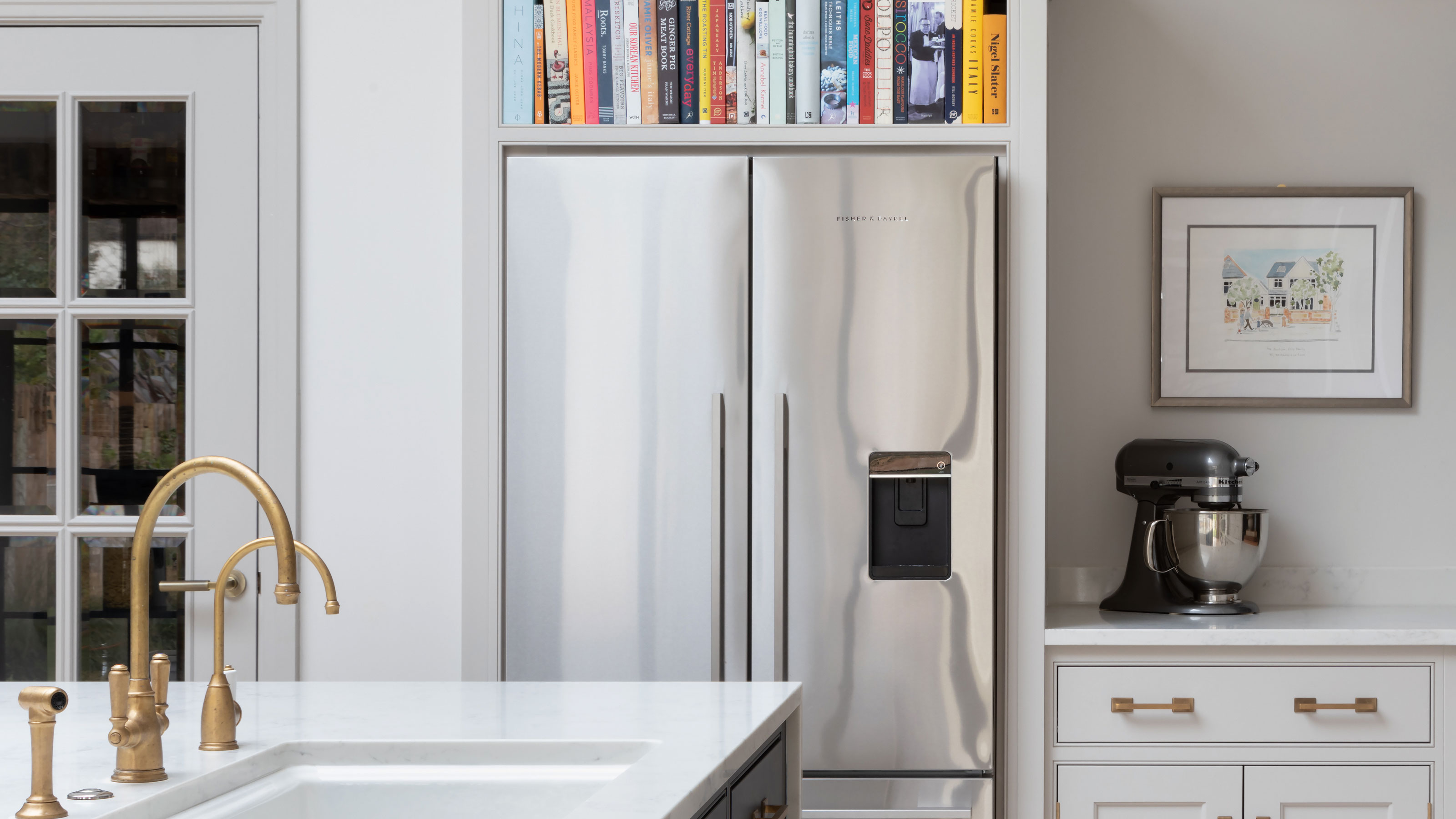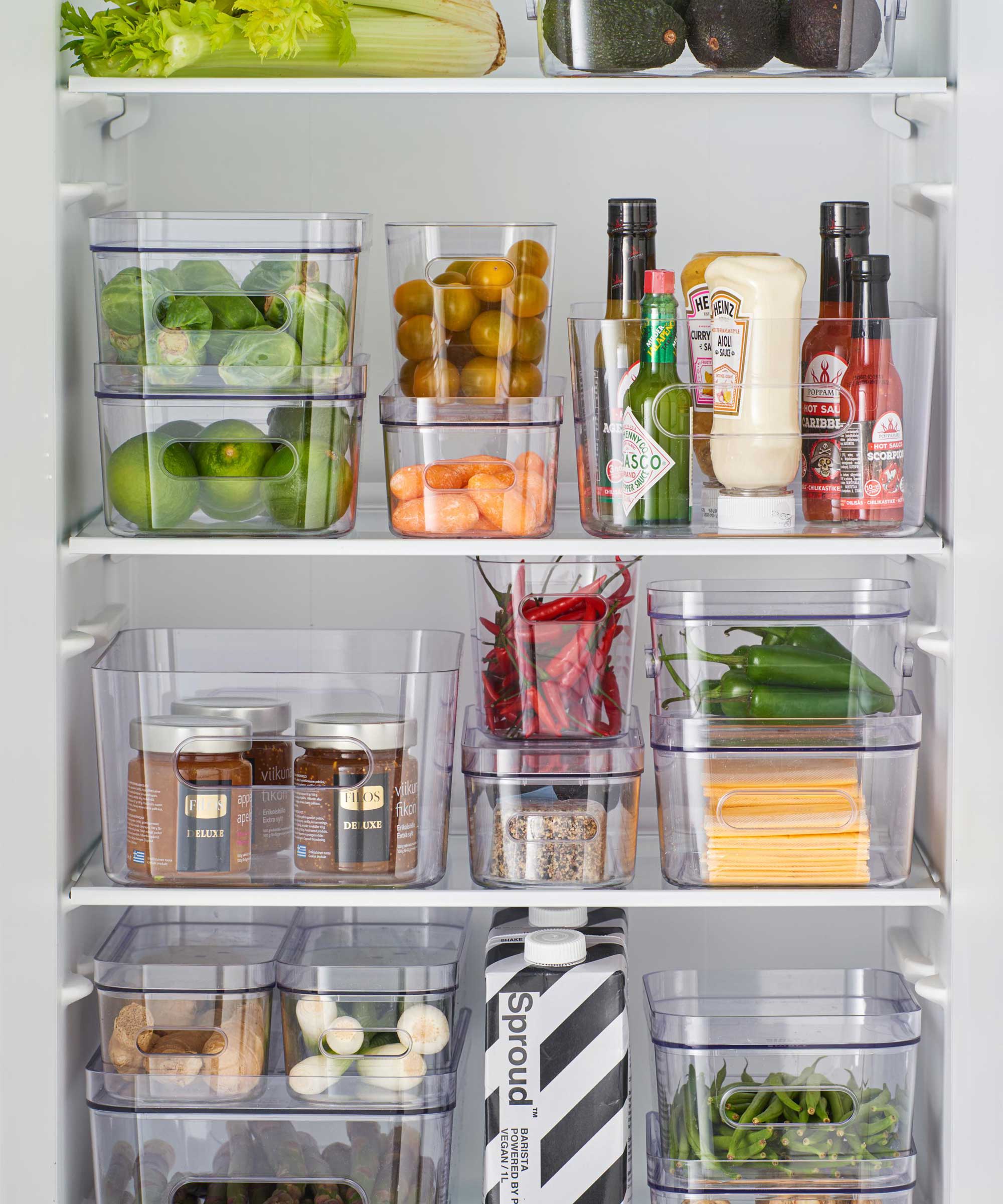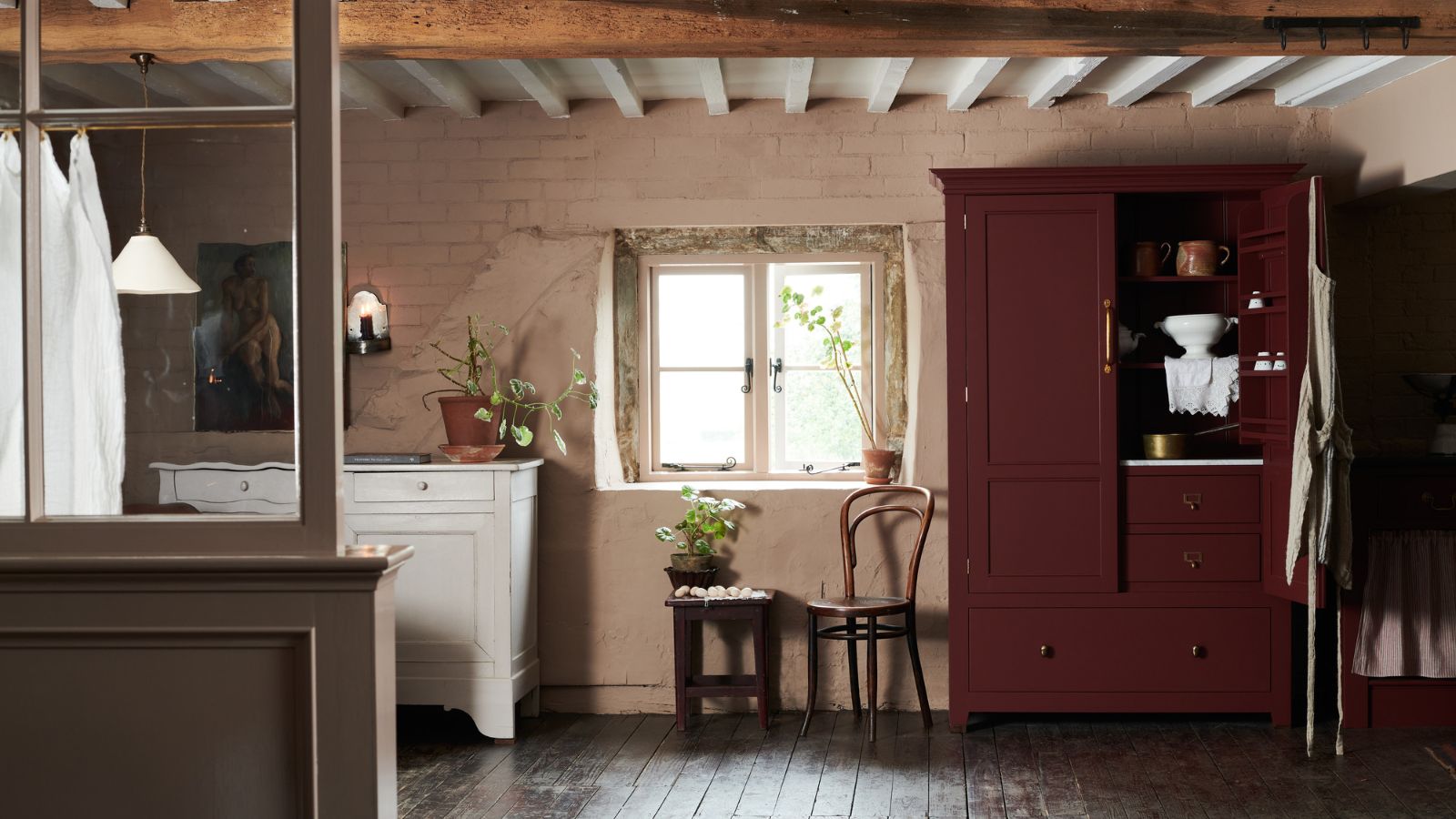Tired of dealing with fridge odors? Here are 4 tested ways to eliminate lingering smells
Learn how to get rid of fridge smells once and for all with these simple odor-neutralizing techniques


A sparkling clean kitchen can quickly be overshadowed by unpleasant smells wafting from the fridge whenever you open the door. Whether it’s the remnants of last night’s takeout or just a particularly ripe cheese, there are several effective ways to neutralize kitchen odors and keep your fridge smelling fresh.
Fridge odors are often the result of leftover food, spills, or forgotten produce that has started to rot. These odors not only make your kitchen less enjoyable but can also affect the taste and quality of your food. So, it's a good idea to address these issues promptly to maintain a hygienic and clean kitchen.
With a few simple steps and tried-and-tested methods, you can eliminate those lingering smells and ensure your fridge stays fresh.
How to get rid of fridge smells
From identifying the source of the bad smells to deep cleaning your refrigerator, these strategies will help you keep your fridge and kitchen smelling great all year round.
1. Locate the source of the odors

First, you'll need to check where the fridge odor is coming from. Then, you'll need to inspect and remove any old food from your fridge.
'Start by checking the fruit and vegetable box for rotting food, as this is the usual culprit,' says Delah Gomasi, Founder and CEO of MaidForYou cleaning services. 'If that's not the case, it's a good idea to check the dairy section of your fridge and any left open cheese packets, and finally, the meat section to see if anything is rotting there. If you're unable to turn up anything from the aforementioned process, check and clean behind the fridge cavity.'
2. Clean your fridge
Once you've identified and removed the source of the odor, it's time to clean your fridge thoroughly.
‘When your fridge starts to stink, it's time to empty it out,’ says Rhonda Wilson, Quality Lead Cleaner at FreshSpace Cleaning. She recommends sorting everything into two piles – stuff to keep and stuff to toss. Chuck out anything that's gone bad or looks like it's about to. Next, remove the drawers, slides, and ice maker box, and scrub with dish soap, like Dawn, warm water, and a sponge.
‘To deep clean a refrigerator, you can use a natural cleaning agent like vinegar and lemon juice diluted with a bit of dish soap in water or baking soda paste,’ Rhonda continues. ‘If the fridge's insides are really gross and smelly, I suggest grabbing a mild all-purpose cleaner or a Mr. Clean Magic Eraser from Walmart.’
When you're cleaning, a sponge or a microfiber cloth, as well as an old toothbrush, can help to clean the nooks and crannies. Don't forget to clean the rubber gasket around the door because it can trap odors and often develop mold. If your kitchen is a busy spot or prone to spills, clean your fridge more often. Keep those perishables and spill-prone items in check to avoid stinky situations.
3. Neutralize the Odors

Once your fridge is sparkling clean, the next step is to neutralize any lingering odors. Here are some tried and tested methods:
Baking Soda
Placing an open box of baking soda in your fridge can help absorb odors naturally. Baking soda is known for its odor-neutralizing properties due to its ability to absorb moisture and smells. For the best results, replace the box every 2 months or sooner if you notice the odors returning.
Lemon Juice
Katie Dills, Brand President at The Cleaning Authority, suggests adding two drops of pure lemon essential oil to a cotton ball (try this MAJESTIC PURE Lemon Essential Oil from Amazon) and sticking it in the back of the fridge to absorb smells. Alternatively, soak a cotton ball in lemon juice and pop it at the back of your fridge.
Essential oils will yield faster and better results, but lemon juice is more cost-effective and is particularly useful if you’re already using lemons to clean a kitchen. The natural acidity of lemon juice helps to neutralize bad odors while leaving a pleasant, fresh scent behind.
Coffee Grounds
While it's possible to clean a kitchen with coffee grounds, they're best used for absorbing and neutralizing nasty odors around your home. Coffee grounds work similarly to baking soda by absorbing odors when you place them in a small dish in your fridge. What's more, they leave behind a mild coffee scent, which can be quite pleasant.
Activated Charcoal
Activated charcoal is another excellent odor absorber. It's highly porous and, therefore, effectively traps odor molecules. You can place it in a dish or cloth bag to keep your fridge smelling fresh, and it can last several months before you need to replace it. I like to use these Fridge Ninja Unscented Activated Charcoal Fridge Deodorizers from Amazon.
4. Contain Food Items

Some foods, such as onions, garlic, and certain cheeses, are notorious for causing bad smells in a fridge. To prevent foul food odors from spreading, store these items in airtight containers.
Keep a lid on them: Store strong-smelling foods in high-quality, airtight containers. This not only prevents the smells from escaping but also keeps the food fresher for longer. Glass containers with tight-sealing lids are particularly effective, but if you don't have airtight containers, use plastic wrap or aluminum foil to wrap foods with strong odors tightly.
Separate odor-causing foods: You can also store strong-smelling foods in a designated section of the fridge, away from other items. This helps isolate any smells and makes them easier to manage.
Some foods, like milk and butter, can absorb odors, so they should also be stored in airtight containers or wrapped securely.
Make it a habit to regularly check your fridge for any food that might be nearing its expiration date or starting to spoil. Rotating your food ensures that older items are used up first, reducing the chance of them going bad and causing odors.
Sign up to the Homes & Gardens newsletter
Design expertise in your inbox – from inspiring decorating ideas and beautiful celebrity homes to practical gardening advice and shopping round-ups.

Thomas Litten is a freelance food and drink writer whose articles and product reviews have been featured in a variety of national publications. His introduction to food and drink came through the hospitality sector, running bars for Michelin-starred restaurants. This experience, plus a love of good food, wine, and spirits, led to a career selling premium drinks to high-end restaurants and later providing consultancy services to food and drink start-ups across the UK. Now, based in southwest England, he mainly divides his time between working for a leading bakery business, visiting coffee shops, and collecting and writing about kitchen gadgets.
-
 Thoughtful modernism – how one Dallas home makes bold contemporary design feel warm, welcoming, and comfortable
Thoughtful modernism – how one Dallas home makes bold contemporary design feel warm, welcoming, and comfortableWith its mix of textural finishes and carefully curated furnishings, this modernist home is a refreshing retreat
By Karen Darlow Published
-
 'Wick away the ick' – 6 things people with clean laundry rooms always do to make this hardworking space shine
'Wick away the ick' – 6 things people with clean laundry rooms always do to make this hardworking space shineThese tips on how to clean your laundry room will banish grime
By Seraphina Di Mizzurati Published